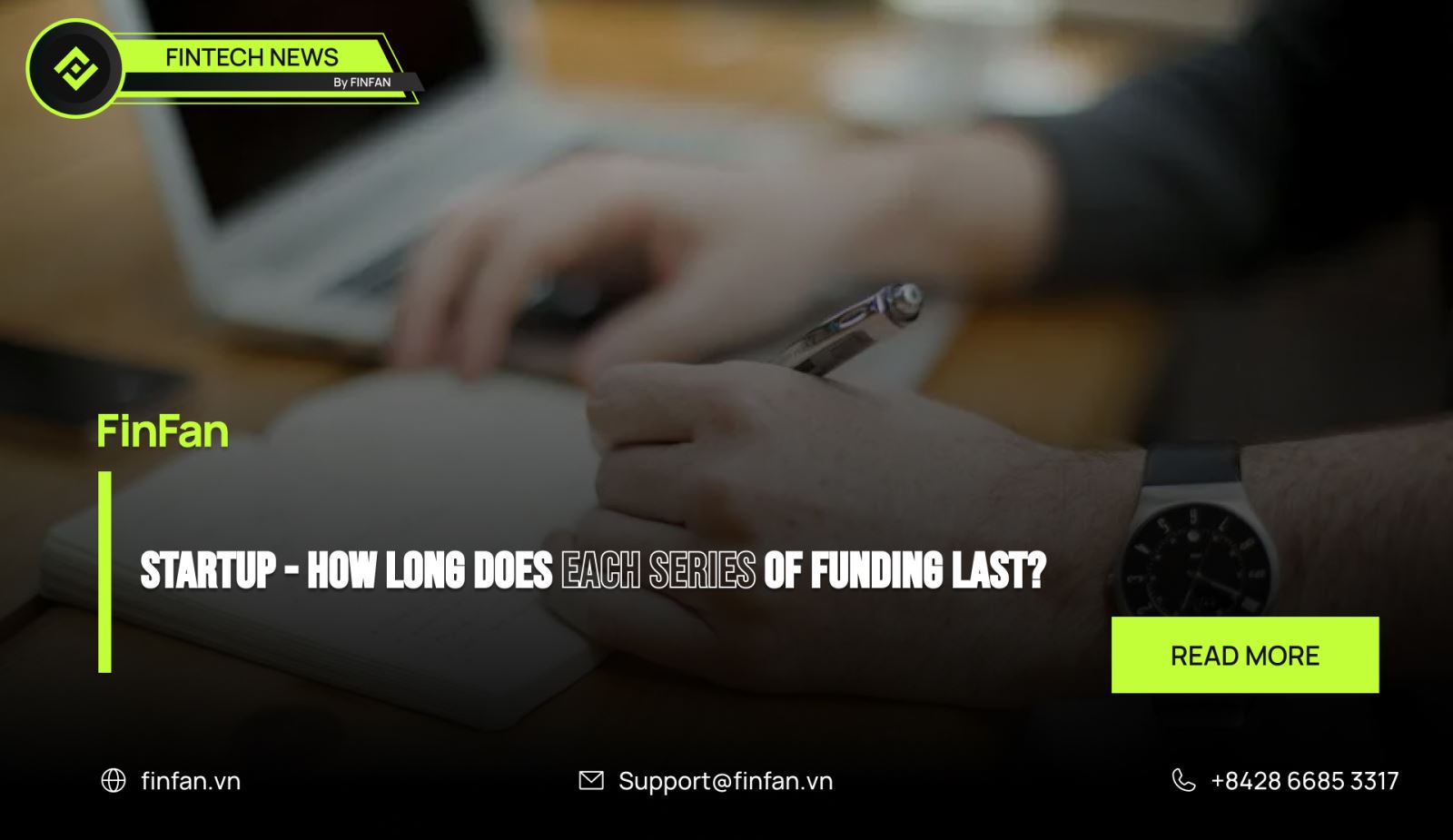Startup - How long does each series of funding last?

In the article Startup series funding – How many series does a startup need to become a unicorn? FinFan wrote about the definition of a series of funding and show the number of series that startups need to overcome to become unicorns.
How long each series of funding lasts is also an interesting question. In this article, FinFan will let you know about this.
Examples about the time of each series of funding
In this part of the article, FinFan will give you 3 examples in Vietnam of the duration of each series of funding.
- The first example is the MoMo (partner of FinFan).
Series A of MoMo happened in January 2013 with only Goldman Sachs as the first big investment fund with the total invested money being $5.8 million.
After 3 years of running, the next series happened in March 2016. At that time, 2 big funds Goldman Sachs and Standard Chartered co-invested in MoMo.
After Series B, MoMo continued to receive funding in Series C in January 2019 with a total amount of funding of up to $100 million.
After Series C, in 2021, MoMo was invested in by Warburg Pincus in Series D. Only one year later, this company goes to Series E with the biggest capital of all time, over $200 million, making the company's capitalization up to $2 billion.
From the story of MoMo, we can see that this company needs an average of about 2 years for each series of funding. However, at the start period, MoMo needed more time than the following funding rounds. This can be easily visualized when after difficult early stages, MoMo now becomes a unicorn in Vietnam with the most users (The latest statistics have reached 31 million users).
- The second example is Tiki.
Tiki is one of the biggest ecommerce exchanges in Vietnam (after Shopee and Lazada). Unlike the other 2 big guys, Tiki was founded by Vietnamese founders.
The first Series of Tiki happened in March 2012 with the biggest investor CyberAgent Capital.
Realizing the huge development potential of the ecommerce market, many investors participated in investing in Tiki. This company went very fast to the 2nd round of funding Series B only a year later in August 2013.
Then the ecommerce market was growing in Vietnam with the entry of regional giants such as Shopee and Lazada. Tiki developed harder and had to wait 3 years before they reached the 3rd round of funding.
Then the ecommerce market entered a period of fierce competition, and the big guys in the industry spent a lot of money on advertising to attract users with the strategy of accepting losses. Tiki was also not out of that vortex. They also suffered heavy losses and needed another round of funding very quickly in just 1 year in September 2019.
Series D of Tiki was divided into 2 rounds of funding called Venture Round and Private Equity Round and it lasted till June 2020.
Then Tiki needed just 1 year later to come to Series E in August 2021 and on the way to the IPO.
- The last startup is VNPay (the second tech unicorn of Vietnam – another partner of Finfan)
VNPay is evaluated as the 2nd unicorn technology company in Vietnam after MoMo. VNLife, which owns digital payments firm VNPay, said it had raised over $250 million in a series B funding round co-led by U.S. investors in 2021.
Vietnam’s second tech unicorn, according to Tech in Asia, used the funds to capitalize further on the vast market opportunities on offer as the country grows increasingly digitalized.
In 2019, VNLife reportedly received $300 million from the U.K.’s based SoftBank Vision Fund and Singapore state fund GIC but did not disclose the information at the time.
VNLife’s core financial technology unit is VNPay, which powers the mobile apps of Vietnam’s 22 banks, including top ones like Agribank, Vietcombank, VietinBank, and BIDV.
Conclusion about the time of each series of funding
Most Series A funding is expected to last 12 to 18 months. If a company still needs funds after this period to dominate its market, it can go through Series B funding. By the point a startup gets Series B funding, it's already successful.
However, the above 3 stories about the top 3 startups in Vietnam let us know the duration of each series of funding will be depended on certain factors such as market situation, internal business, development orientation of the founders, etc.